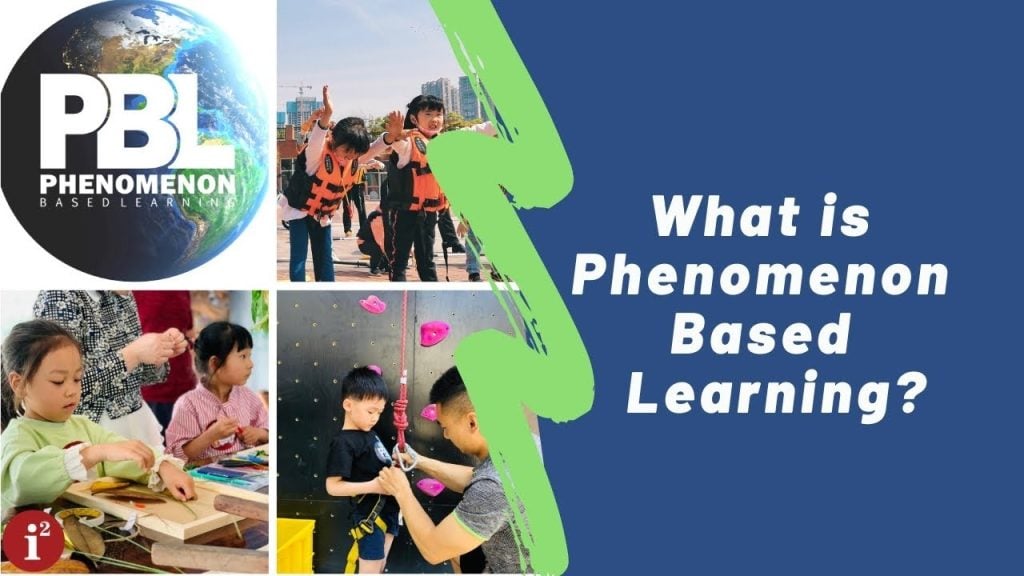
Phenomenon-based learning has become very popular over the last few years, and it is a learning approach that is centered around problem-solving and student inquiries. This article will look at what phenomenon-based learning is and its benefits.
Lauren Bradshaw, a professional essay writer from Custom Writings said, “There isn’t a specific subject taught, nor are there any learning objectives. Learners will have to solve and investigate their questions by applying subjects that are linked to their problems”. This form of learning is often confused with inquiry-based learning, problem-based learning, and project-based learning because it shares similarities with them.
When many professional writing services are asked what sets phenomenon-based learning apart from the rest, they say it is a concept that must have an interdisciplinary approach as well as have a global context. What this means is the topic one has to talk about has to be a real-world problem, and different perspectives need to be applied to study the topic properly.
Origins of Phenomenon-Based Learning
The origin of phenomenon-based learning can be traced back to 2016 in the country of Finland. They looked at their educational system and decided to make changes to it by asking students to take one module per year with this learning approach. The object was to make life better for their students and prepare them for future careers.
Thanks to this approach, students were able to learn things in greater detail because real-life issues were being applied. Students were also able to apply different skills and knowledge they’ve learned from different subjects.
This enabled them to improve their communication, teamwork, problem-solving, and critical thinking skills. These are the skills many employers look for and due to its success in Finland, phenomenon-based learning has become one of the most popular ways to learn across the world.
Benefits of Implementing Phenomenon-Based Learning
Better engagement
Phenomenon-based learning promotes greater engagement because students or learners are taught new skills and gain new knowledge on a topic that interests them instead of one that is picked for them. When employees are involved in problem-solving events or scenarios, it promotes what is known as connected learning.
The workforce of an organization will know how the knowledge they gain from different areas can be applied and connected to real-world scenarios. Phenomenon based learning is very impactful and provides employees with a different way of looking at real-world problems, plus it helps learners connect different disciplines
Deeper learning
Custom writing services say that phenomenon-based learning also promotes deeper learning because students can make connections between real-life issues and the subjects they are studying. In a workplace setting, this sort of learning can include a variety of challenges that employers and employees want to solve.
When employees discover the skills and knowledge needed to solve work-related problems, not only will their productivity improve, but also let parties involved know how certain skills can be applied to certain work-based problems in real-time.
Better communication skills
The main objective of phenomenon-based learning is to prepare students to solve real-world problems, but there are more benefits. Unlike more traditional learning methods like disconnected concepts or passively learning abstract concepts, what phenomenon-based learning does for students is present them with real-life issues.
It asks them to find the skills and knowledge needed to solve them. Phenomenon-based learning helps students become better communicators because they can improve their problem-solving, critical thinking, and teamwork skills.
Gives learners a sense of independence
Phenomenon-based learning makes students or learners become more independent and take ownership when it comes to their learning. This creates a more self-sufficient approach to how one goes about their studies or even work.
Drawbacks of Phenomenon-Based Learning
Phenomenon-based learning may not be the answer to specific learning goals
If there are certain learning goals that learners or students want to achieve, phenomenon-based learning is not the solution for that. This is because there are no imposed goals when it comes to this learning approach. After all, students will create them as they learn or study.
Constant support is needed
Any college or university that decides to use phenomenon-based learning needs to ensure that resources and support are available to their students or learners at all times to deal with any self-led projects. If there is no one overseeing the operation, students will feel lost and might find issues learning the knowledge and skills needed to complete their various projects.
Phenomenon-based learning lacks formal structure
If this learning approach is implemented in a company where learners need to show that they completed the knowledge and skills needed, it is not a good idea because it lacks a formal structure.
Phenomenon-based learning is not good for feedback
If a student or learner values feedback on how they are getting along, phenomenon-based learning falls short in that department because learners assess themselves rather than be assessed on their flaws, and feedback is provided.
The Impact of Phenomenon-Based Learning in Education
Universities and colleges that have implemented phenomenon-based learning as part of their curriculum have seen higher pass rates in their online courses, as well as students getting better grades. Some students are too busy to attend classrooms or are studying part-time, and this form of learning helps them get through the course they are passionate about without putting other commitments to the side.
This is all down to letting students explore answers for themselves and look at subjects from a variety of different angles. When tutors or even essay writing services mix real-life problems with theories, the results are students who can think outside the box and take ownership of situations. Learning this early puts them in a great position in the future when they start working.
How Phenomenon-Based Learning Works
The concept of phenomenon-based learning is very easy, and it goes as follows:
- Students or learners, in this case, will ask questions related to real-life scenarios that interest them the most
- The second thing is learners will research to find answers by looking at the topic from a variety of different angles
- Instructors or tutors will oversee everything and guide learners/students to explore new concepts and learn new skills needed to tackle the problem
- Finally, the students or learners will deliver and present the answers they have found to the instructors or tutors in a format that suits them.
Final Thoughts
Many academic writing services say that the good thing about phenomenon-based learning is it teaches teamwork, critical thinking, and problem-solving. These skills are very hard to learn in just a classroom setting where watching e-learning videos and listening to your tutor or instructors are the main forms of learning.
To develop the skills mentioned, one has to actively engage with real-world problems, and that is the goal of phenomenon-based learning. It has grown in popularity in recent years because of the success many colleges, universities, and workplaces are seeing. The demand for it will only continue as people continue to grow their skill sets independently and solve big problems.












